A Coup Made in India?
Despite reports of a sordid role played by India’s High Commissioner in the Maldives coup of 7 February, the Ministry of External Affairs retains ‘full confidence’ in its chargé d’affaires in Male
 Mihir Srivastava
Mihir Srivastava
 Mihir Srivastava
|
03 May, 2012
Mihir Srivastava
|
03 May, 2012
/wp-content/uploads/2015/11/maldives-5.jpg)
Senior figures in the ousted Maldives government raise questions about the role of the Indian High Commissioner
“There is big money at play, estimated to be $25 million, which was distributed among the rank and file of [the Maldives’] army and police to rebel against [ousted Maldives President] Nasheed. Some money came from [former dictator] Gayoom’s half brother and People’s Alliance Leader Abdulla Yamin. He transferred several thousand US dollars from Colombo to some army and police officials by way of travellers’ cheques… [The Indian High Commissioner] Mulay definitely does not operate like a high commissioner. I have heard, but I am not sure, that Mulay had a meeting at Paradise Island Resort with coup leaders two days before it happened. I am sure that Abdulla Yamin was in Mulay’s office right from 8:45 in the morning, on 7 February, when the coup was happening”
~ REEKO MOOSA MANIKU, chairman of the Maldivian Democratic Party, which was ousted in the coup
“I was surprised that instead of contacting us, the government [of Maldives], Mulay was having a discussion with opposition party leaders like Yamin in the Indian High Commission [in Male, the country’s capital] when the coup was happening. In a situation like this, why call the opposition and not establish contact with the government? I believe that proper information was not passed on to Indian authorities. Before this happened, I never suspected [any conspiracy]. We were very close”
~ AMEEN FAISAL, national security advisor to ousted Maldives President Mohamed Nasheed
On 7 February 2012, Maldivian President Mohamed Nasheed was ousted in a coup backed by the tiny country’s police and military. The coup took shape on the night of 6 February at around 11 pm, when the police staged a mutiny at Independence Square, a short distance from the headquarters of the armed forces on the main island of this archipelago in the Indian Ocean. At dawn, when Nasheed went to the military headquarters to order the army to contain the police mutiny, he was in for a shock—some 200 military personnel had joined the rebellion. Nasheed was soon divested of whatever dignity he had left on his return to the presidential palace, where he was severely manhandled by a group of mutineers—there were around 300 army and police men on the premises—and forced to resign.
On a visit to Delhi last month, Nasheed spoke to Open and asked some of his closest associates to brief us about the coup. Their claims and accusations raise serious questions about the role of Indian High Commissioner Dnyaneshwar M Mulay (posted in Male), who did not respond to Open’s questions. They also raise serious questions about the role of the Indian Government, given that the Ministry of External Affairs (MEA), in response to these charges conveyed to it by Open, has gone on record to state its confidence in the High Commissioner.
On 13 April, at eight in the morning at Delhi’s Lalit Hotel, Nasheed has just finished his breakfast. A busy day with a packed schedule awaits him—interviews with the Indian and foreign media, apart from meetings with top officials in the Indian Government. Dressed like a CEO, in a black suit with a golden tie, he settles down to a cup of tea and quick chat about the coup. “My critics call me pro-India,” he says, “They now ask, ‘What happened to your friend?’”
After the coup, India took less than 24 hours to grant recognition to the new dispensation—led by Nasheed’s vice-president Mohamed Waheed, who had the support of Maldives’ former dictator Maumoon Abdul Gayoom, whose loyalists were widely believed to have orchestrated the overthrow of Nasheed’s government. “We did not seek militarily intervention,” the deposed president says, “but many of us were shocked to see that India was quick to recognise the coup government.” Barely had the dust settled in Male that Indian High Commissioner Mulay was accorded a high civilian honour by the police department under the new regime.
Nasheed is careful not to go on record with his version of what transpired while the coup was actually underway. “Party Chairman Reeko Moosa Maniku will speak on my behalf,” he says.
Maniku, chairman of the Maldivian Democratic Party (MDP) and a member of parliament, has spent five years in jail—from 1982 to 1987—for protesting against dictatorial regimes in his country. On the day of the coup, he says he was beaten up by policemen on the streets of Male. Now, he claims, the incumbent government is harassing him. Two weeks ago, his office was ransacked, and the computers were dumped in toilets. “Give me 15 minutes,” he says, “I will explain the whole situation.”
The MDP chairperson begins by talking about Mulay, who he refers to as a ‘good friend’. “[Former] President Nasheed is fond of him. When he visited India last, in January 2010, he took Mulay along with him to meet Prime Minister Manmohan Singh. He took him along to all important meetings. It was because of these interactions that Mulay came to be known as ‘India’s Maldives Man’ in the power corridors of Delhi.”
“[Mulay] became so powerful that he started behaving like the prime minister and not a high commissioner. In early 2011, we felt that Mulay was drifting away from the MDP. He wanted to meet leaders of opposition parties. He wanted to be invited to all official functions that took place in Maldives. He was invited to many government functions, but not all. We found that a lot of companies were coming [to the country] for business through Mulay. We were floating tenders for big projects. He would act like a middleman.”
On his January 2010 visit, according to Maniku, Nasheed had got a financial grant of $40 million from New Delhi for various housing projects. “Mulay has business interests in Maldives,” says Maniku. This was apparent, he says, when he saw the High Commissioner represent the interests of an Indian company (which, incidentally, is among those under the scanner in the Commonwealth Games scam). This company, he indicates, was keen on a tender for a housing project, and so Mulay asked Maldives’ Minister of Housing Mohamed Aslam to award it a contract to that effect; Aslam refused, saying that he could not do it without the tender being processed in accordance with appropriate procedures. This displeased Mulay. Maniku says he was surprised to learn that Mulay then asked President Nasheed directly about the contract. The latter refused to help.
“Mulay would visit various [Maldivian] islands with his Indian friends, many of them businessmen,” says Maniku, “The government did not know who they were. Mulay has good connections with opposition parties, particularly Gayoom’s party.”
In such a small country literally located in India’s littoral, every act of the Indian High Commissioner has significance. When Mulay recently changed the colour of his office walls to match the dark blue of a party opposed to the MDP, many interpreted the move as a subtle signal. “The Indian High Commission was always painted white,” says Maniku, “He perhaps wants to tell us that he is not happy with us. Mulay told me, ‘No need to worry [about the office colour].’”
Maniku also cites government reports on Mulay’s cosiness with top businessmen in Maldives: “Like the owner of Paradise Island Resort, a prime tourist destination. His name is Gasim Ibrahim.” This man heads the Jumhooree—‘republican’—Party. He was the speaker of the last constituent assembly, which passed Maldives’ current constitution, and was one of the leaders of the coup. He is also one of the richest men in Maldives.
Nasheed and Ibrahim are believed to be bitter opponents. The latter had even issued the president a public warning last December. “I will not stand aside and watch him destroy the Maldives,” Ibrahim had said. This was soon after Nasheed had ordered the closure of spa facilities at Paradise Island Resort on charges of ‘suspected’ prostitution.
Tourism interests, in Maniku’s account, had a pivotal role in the coup. An estimated $25 million, he alleges, was passed on to key players in the police and army to buy their loyalty; and some of this money came from Abdulla Yamin, a leader of the People’s Alliance who happens to be Gayoom’s half brother. Says Maniku, “He transferred several thousand US dollars from Colombo to some army and police officials by way of travellers’ cheques.” Of the Indian High Commissioner’s conduct, he says, “I have heard, but I am not sure, Mulay had a meeting at Paradise Island Resort with coup leaders two days before it happened. I am sure that Abdulla Yamin was in Mulay’s office right from 8:45 in the morning, on 7 February, when the coup was happening.”
“How many times did Mulay try to talk to somebody in the Government of India when all this was going on?” Maniku asks, “How many times did Mulay call the Indian Government to ask them to intervene? There are 30,000 Indians living here and Indian business interests are at stake. He should have informed the Indian authorities. There is something fishy about Mulay’s response.”
On the day of the coup, Maniku says, he called Mulay on his personal mobile phone, informing him of the threat that MDP politicians were under. “I told him, ‘The police are looking for us like mad dogs’.” Maniku was underground at the time, as he feared that rebel policemen were planning to kill him. Mulay assured him that he would ensure his party members’ safety, and also said that Nasheed was going to resign. Since this was the first time he was hearing this, Maniku called up other party leaders to confirm it.
With armed forces out on the streets, says Maniku, the entire country—except luxury resorts, ironically—was under siege. Police stations were being set afire, and coup supporters with Islamist leanings were out on a rampage: they destroyed 30 Buddhist statues dating back to the sixth century on display at Maldives’ National Museum.
Says Maniku, “The army was calling out my name on a mike, ‘Bring the fucker, we want kill him.’ Have you seen my pictures? My face was full of blood—they were going to kill me.”
At this, Maniku rises and goes to join Nasheed for another meeting, but returns within a minute. “I have another question to ask the people and Government of India,” he says, “There are fundamentalist groups associated with the Adalat Party that have close connections with such elements in Pakistan. Their members are now in the government. They supported the coup. What links does Mulay have with this radical Islamist party? Why is he supporting them? These are the same parties that swore to rid the country of Indian businesses, especially GMR, on 23 December last year. Mulay should also know that fundamentalists are gaining strength in the army. This also means that Chinese investment will go up [since] Gayoom has a close relationship with China, which has been sending money and big business delegations to Maldives. Why was this allowed to happen?”
The next evening, Ameen Faisal, national security advisor to President Nasheed (a higher ranked post than that of defence minister) speaks to Open. A fit middle-aged man with a shaven head, he is in a white linen shirt and blue jeans. He describes his interaction with Mulay—“a good friend”—while the coup was being conducted:
“I maintained a close relationship with Mulay. I called him three or four times while the coup was underway. I could not contact President Nasheed. At that point, he was inside the army headquarters and his phone was jammed. I spoke to Foreign Minister Ahmed Naseem, instead, for his advice on seeking Indian intervention to control the situation. He told me that President Nasheed did not want any military intervention as it was an ‘internal matter’. Later, Naseem called me to request some assistance from India. As the national security advisor, I called up Mulay and sought Indian assistance… He asked me to ask the foreign minister to send a note. I told Mulay that this was no time to be sending notes or love letters. Ibrahim Hussain Zaki, the president’s special envoy, was aware of all this.”
“Mulay’s office is next door,” Faisal says, “He could see what was happening from his window. The whole coup was being telecast live. As a diplomat, he should’ve known that the whole country was in chaos… I was surprised that instead of contacting us, the government, Mulay was having a discussion with opposition party leaders like Yamin at the Indian High Commission when the coup was happening. In a situation like this, why call the opposition and not establish contact with the government? I believe that proper information was not passed on to Indian authorities. Before this happened, I never suspected [any conspiracy]. We were very close.”
“Earlier that day,” adds Faisal, “Mulay told me that an Indian Navy ship was just an hour away from Male.” Independent reports confirm this: the Indian naval ship INS Suvarna was in waters close to the archipelago on 3 February, three days before the coup, and it departed only on the morning of 7 February—strangely, the day that Nasheed was forced to resign.
“If the Indian Naval ship was just an hour away, it was in our territorial waters,” says Faisal, “Why was the [Maldives] government not informed of it? What was Indian naval ship doing there?”
These are grave charges indeed, and while Open has made every possible attempt to ask Mulay for his version of events, he has not responded. India’s MEA, meanwhile, has responded with a request instead of explanation. ‘Can you please send me any ‘on the record statements’ made by Former President Nasheed and his Colleagues on the issues you have listed? These would be of immense help in understanding the nature and content of the allegations,’ wrote Syed Akbaruddin, joint secretary and official spokesperson of the MEA.
Open sent the MEA a list of allegations against Mulay: that he has business interests in Maldives, had acted as an agent for certain Indian corporate interests, was being accused of an active association with those who engineered the coup while it was being carried out. We did not reveal our sources since we had reason to believe the MEA would exert pressure on them to retract their statements.
However, instead of addressing these charges, the MEA has secured a denial from Nasheed. Writes Akbaruddin: ‘The alleged references to the High Commissioner’s conduct in some media interactions by former President Nasheed were raised during his discussions with Indian officials. The former President had clarified that he had not said the things attributed to him in the media. He said that he had known the High Commissioner for three years. The High Commissioner was a poet and he liked him. There were never any issues with the High Commissioner and he would clarify this to the media appropriately.’ The MEA spokesperson also had this advice to offer: ‘We do not think it is appropriate to bring our High Commissioner into the discourse. He enjoys our full confidence.’
The problem with the MEA’s denial is that while it is true in its literal sense, it does not address the issue under scrutiny. Admittedly, Nasheed has not made any statement to Open. But the testimony of his close aides, who were speaking on his behalf (and the magazine has it on tape), demands an explanation.
In 2008, when the UK-educated Nasheed won his presidential election, his victory was cheered by many Indian officials. Among them was Kuldip Sahdev, former ambassador to Japan, Italy and Vietnam, and head of the MEA’s Maldives division from 1985 to 1990, who said, “I have known Nasheed for the last 15 years as a young man who has been jailed 13 times and for a total period of six years, and yet doesn’t show any sign of vindictiveness against Gayoom.”
Today, Sahdev is guarded in his response to the coup that deposed Nasheed. “First of all,” he says, “we must remember that we are talking in hindsight. The resignation that was telecast on TV was genuine. He did resign. Why he resigned is a different issue. That he was forced to resign was only found out later.”
Sahdev agrees that a high commissioner or an ambassador plays a vital role in New Delhi’s policy formulation vis-à-vis the country where s/he is posted. And that India ought to support democratically elected governments to the extent it can. For, “what a non-democratic government will use to cling to power [could be a source of danger]. Cosying up with extremist elements is an obvious tactic that they have been using to some extent.” Sahdev also agrees with the Government’s stated position on Maldives: that it is best that democracy is restored at the earliest. This is a must, he believes, for the situation to be “retrieved”.
The article was modified after it was published in print

/wp-content/uploads/2025/09/Cover-Modi-scaled.jpg)



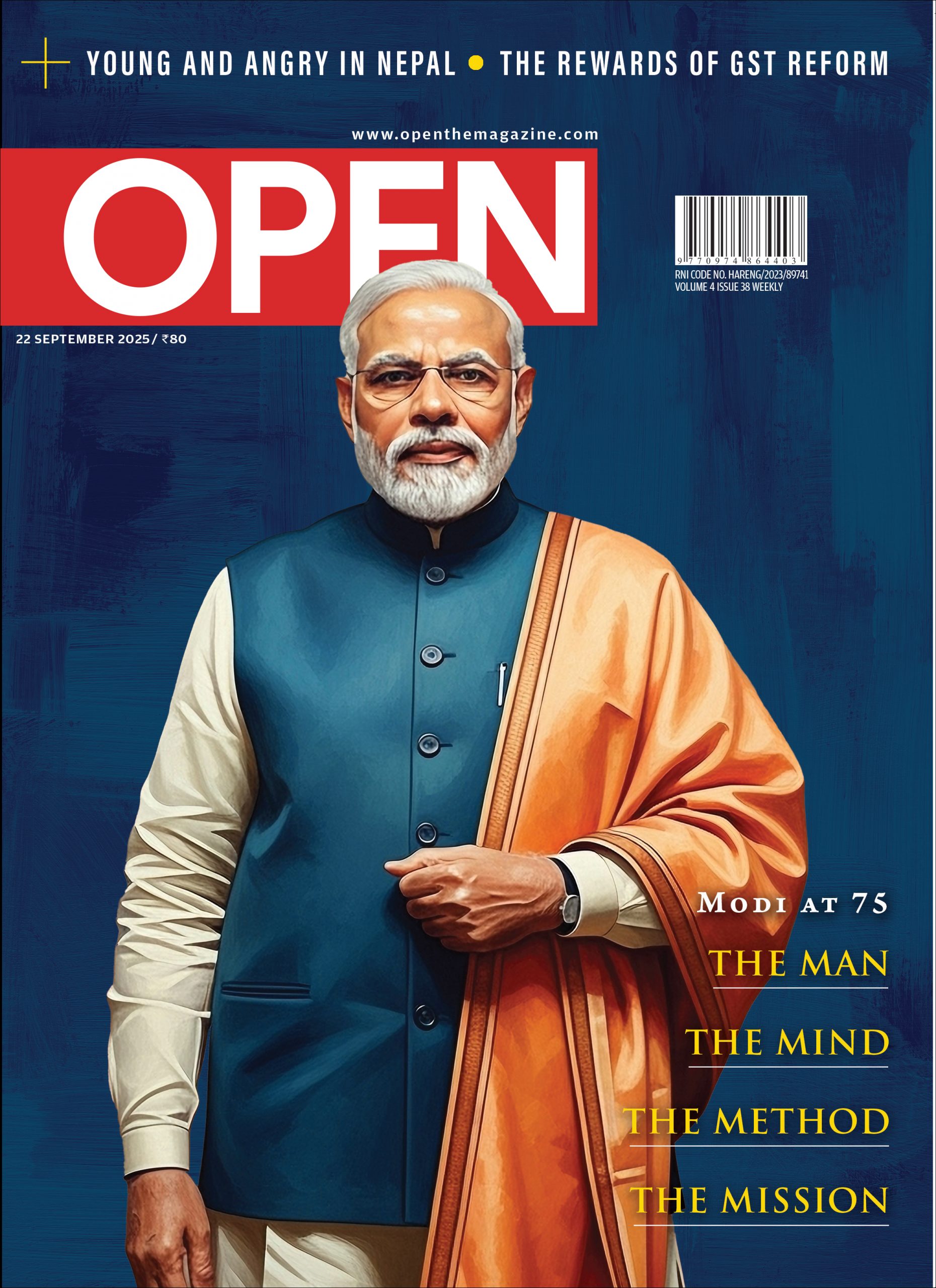


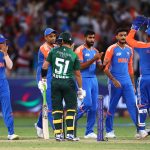
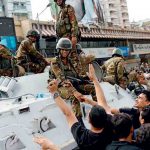
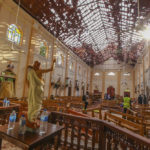
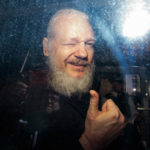

More Columns
I Missed A Flight Thanks To Robert Redford, Plus He Took My Magazine! Alan Moore
Robert Redford (1936-2025): Hollywood's Golden Boy Kaveree Bamzai
Surya and Co. keep Pakistan at arm’s length in Dubai Rajeev Deshpande